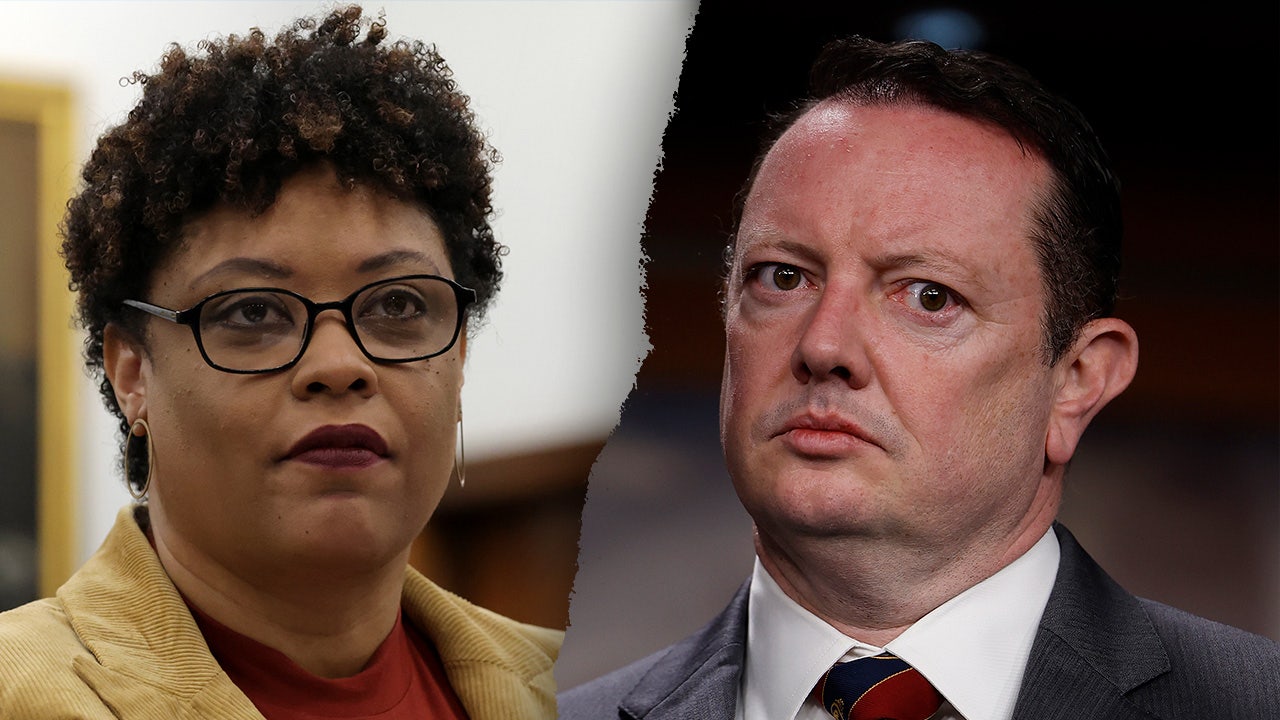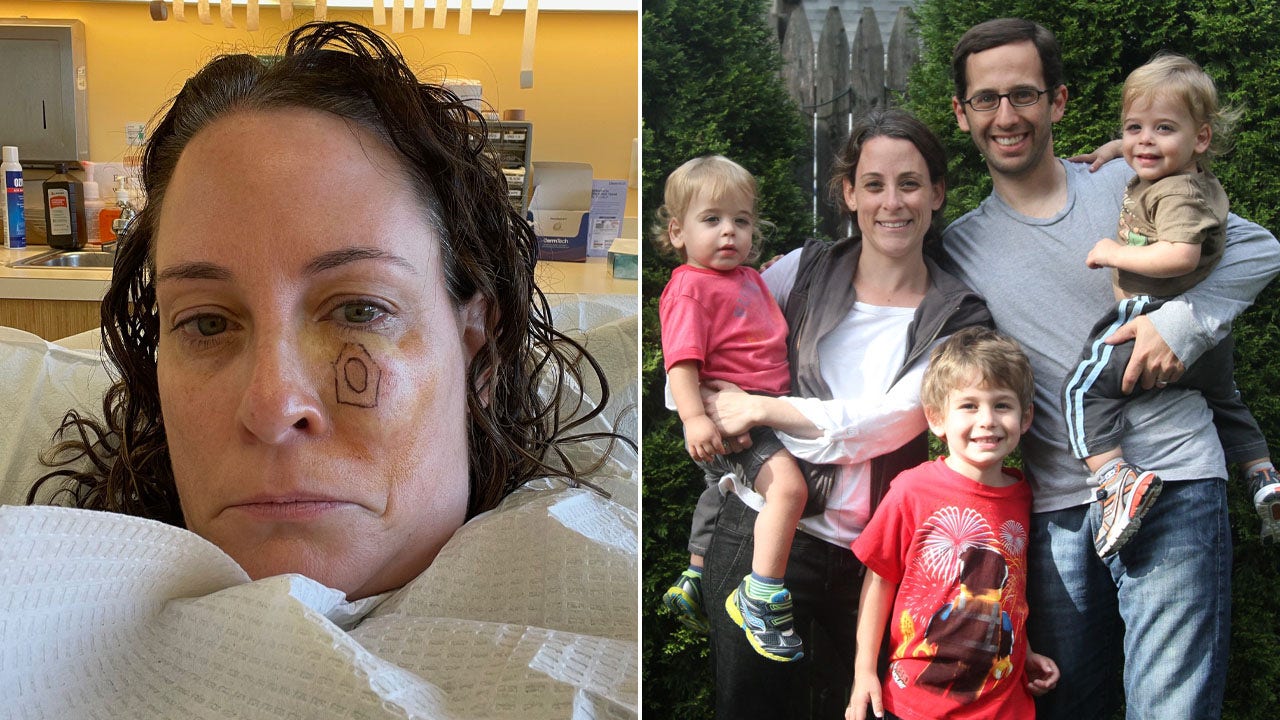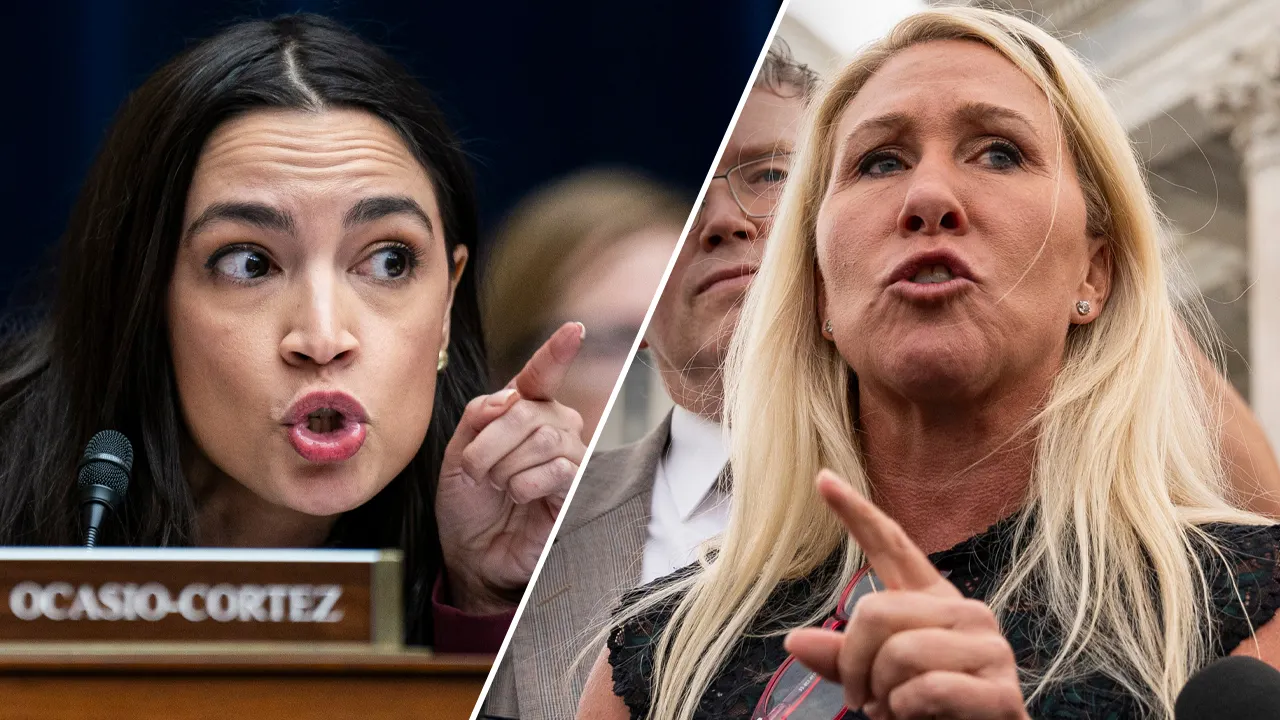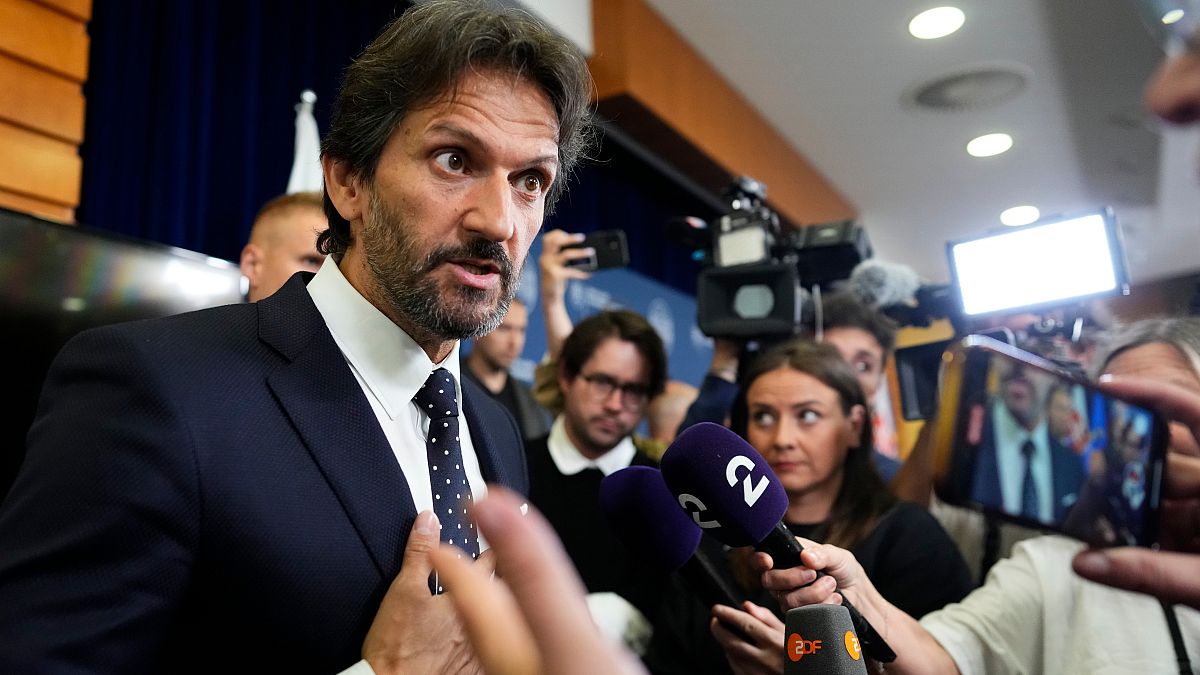World
Verbal gaffe or sign of trouble? Mixing up names like Biden and Trump have done is pretty common
WASHINGTON (AP) — Any parent who’s ever called one of their children by the other’s name — or even the family pet’s name — likely could empathize when President Joe Biden mixed up the names of French leaders Macron and Mitterrand.
The human brain has trouble pulling names out of stuffed memory banks on cue. But when are those and other verbal stumbles normal, and when might they be a sign of cognitive trouble?
“When I see somebody make a flub on TV, I’m really not all that concerned,” said well-known aging researcher S. Jay Olshansky of the University of Illinois at Chicago. “What science will tell you about flubs is that they’re perfectly normal, and they are exacerbated by stress for sure.”
Biden, 81, has a decadeslong history of verbal gaffes. But they’re getting new attention after a special counsel this past week decided Biden shouldn’t face criminal charges for his handling of classified documents — while describing him as an old man with trouble remembering dates, even the date his son Beau died.
That prompted a visibly angry Biden to lash out from the White House, saying, “My memory is fine.” As for his son’s 2015 death from brain cancer, “Frankly, when I was asked the question, I thought to myself, it wasn’t any of their damn business,” Biden said.
Biden is not the only candidate making verbal slips. Former President Donald Trump, Biden’s likely opponent in the November presidential election, has also. Last month the 77-year-old Trump confused his major opponent for the GOP nomination, former U.N. Ambassador Nikki Haley, with former House Speaker Nancy Pelosi, D-Calif.
Health experts caution that neither verbal gaffes nor a lawyer’s opinions can reveal whether someone is having cognitive trouble. That takes medical testing.
But certain glitches are common at any age.
“To easily recall names, right in the moment, is the hardest thing for us to do accurately,” said Dr. Eric Lenze of Washington University in St. Louis, a geriatric psychiatrist who evaluates cognition in older adults.
Some studies have suggested that everyday “misnaming” may occur when the brain has names stored by category — like your family members or perhaps in Biden’s case, world leaders he’s long known — and grabs the wrong one. Or the miss may be phonetic, as the names of France’s current president, Emmanuel Macron, and former President Francois Mitterrand both begin with “M.” Mitterrand died in 1996.
As for dates, emotion may tag certain memories but not run-of-the-mill ones, such as the special counsel’s questions about when Biden handled a box of documents.
“Attaching a calendar date to an event is not really something that the human brain does at any age,” Lenze said. It’s “not like a spreadsheet.”
Whether it’s a name, date or something else, memory also can be affected by stress and distractions — if someone’s thinking about more than one thing, Olshansky said. And while everybody’s had an “it’s on the tip of my tongue” lapse, flubs by presidents, or would-be presidents, tend to be caught on TV.
Olshansky watches recordings of his presentations at science meetings and “there isn’t a single time I don’t make a mistake,” he said. “I’m 69 years old, which I do not consider to be old, but I made the same mistakes when I was 39.”
It’s reasonable for people to wonder if leaders in their 70s and 80s remain sharp, Lenze said. What’s reassuring is if overall, what someone says is overall accurate despite a verbal gaffe.
Some cognitive aging is normal, including delay in memory retrieval. People’s brains age differently, and heart health, blood pressure and physical activity play a role in brain health.
And while Trump often brags about passing a screening-style memory test several years ago, Lenze said the best assessment includes rigorous neuropsychological testing.
___
The Associated Press Health and Science Department receives support from the Howard Hughes Medical Institute’s Science and Educational Media Group. The AP is solely responsible for all content.

World
First brewery opens in Abu Dhabi as parts of UAE loosen alcohol laws
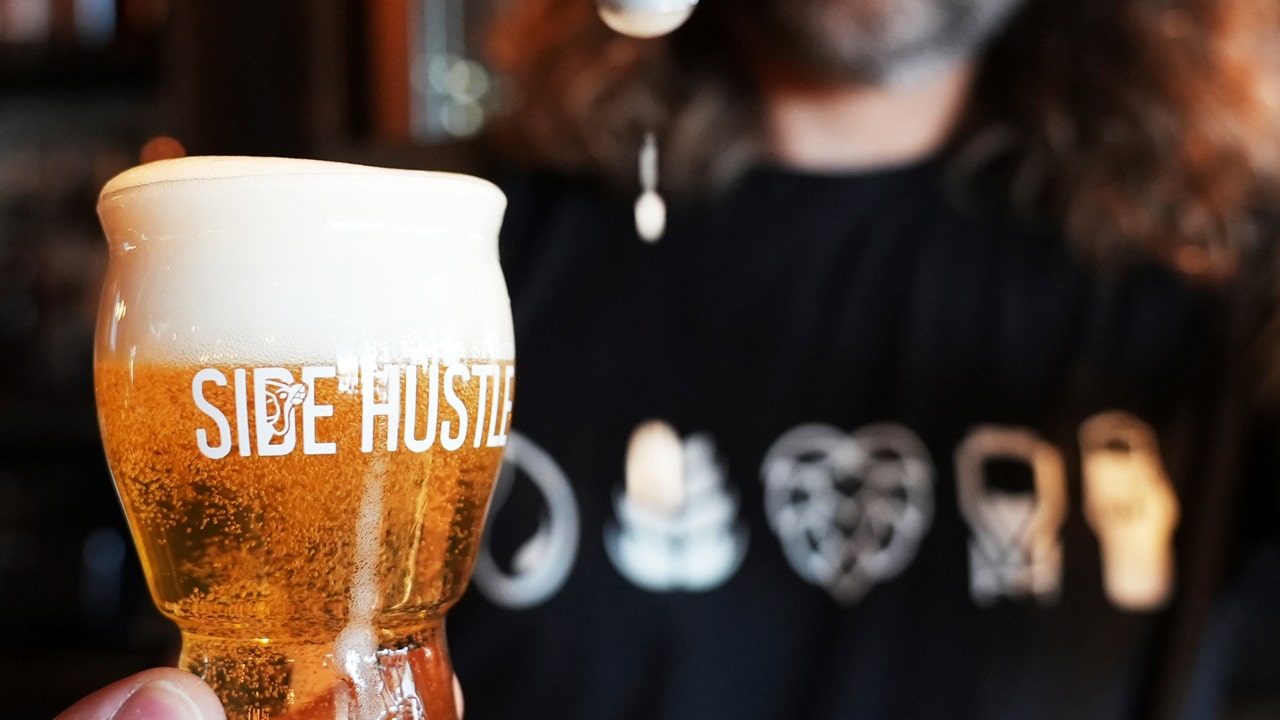
In 2018, Chad McGehee opened Side Hustle Brews and Spirits, an Abu Dhabi-branded brewery and distillery with funky camels on its cans and playful names familiar to anyone living in the United Arab Emirates.
The only problem was it was illegal to produce alcohol in the country, so his company made its hoppy India pale ale in the United States and then imported it to the UAE for sale.
That’s all changed as Abu Dhabi has overhauled its laws to allow for the micro and craft breweries that have taken the rest of the world by storm, part of a wider reconsideration of alcohol policies in the Islamic nation increasingly drawing tourists. And McGehee’s dream of IPAs in Arabia became a reality — though it took hard work as they were the first to open.
NEW YORK WEIGHS ENDING POST-PROHIBITION LAW, POTENTIALLY MAKING STATE’S DRY TOWNS A THING OF THE PAST
“The government had created a regulation around fermentation, but the steps of getting a permit, the steps of inspection, all of these things were not put on paper yet. So that had to be built out as we were going through this process,” McGehee said on a recent afternoon at his brew pub on Abu Dhabi’s Al Maryah Island.
Abu Dhabi has long been considered by those living in the UAE to be more buttoned-up than the rambunctious neighboring emirate of Dubai, home to nightclubs, beach bars and pubs drawing tourists and residents to imbibe. In the seven emirates of the UAE, Sharjah outright bans the sale and consumption of alcohol, like neighboring Saudi Arabia, as well as Iran and Kuwait.
But beginning in 2020, Abu Dhabi changed its policies. It eliminated its licensing system for alcohol purchases for drinkers to boost sales and tourism during the coronavirus pandemic. Eliminating the licenses allowed Muslims, if they chose, to drink, as well as decriminalized alcohol possession for those without a license.
Mitchell Dougherty, the brewmaster at Side Hustle Brews and Spirits, pours a pint of beer at his brew pub in Abu Dhabi, United Arab Emirates, on May 13, 2024. (AP Photo/Malak Harb)
“I think progression in this country is par for the course, they’re always moving things forward,” said Nadeem Selbak, one of the partners at Craft, which is Side Hustle’s brew pub.
The Emirates still maintains a strict no-tolerance policy on drunken driving and public intoxication. Islam also considers alcohol consumption as “haram,” or forbidden.
But alcohol sales long have been a major driver of tax revenue and a moneymaker for the UAE. Dubai Duty Free, for instance, sold 6 million cans of beer last year, as well as 3.8 million bottles of liquor and 2.3 million bottles of whiskey for thirsty travelers.
But despite that demand, there was no local equipment available to open a brewery in the UAE. McGehee ended up importing almost everything for the brewery, nearly all of it coming from the U.S.
Abu Dhabi represents a completely untapped market for Side Hustle.
“The idea for me was like going back in time, when I started almost 20 years ago,” said Mitchell Dougherty, Side Hustle’s brewmaster.
At any given point, Craft has 14 beers on tap. So far this year they have brewed 34 and aim to reach up to 100 by the end of the year. The names of the beers include some winking reminders of life in the UAE, including one called “Massage Card Ninja” — a nod to business cards showing scantily clad women that appear under car windshield wipers in some Dubai neighborhoods.
McGehee said the different types of beers include ingredients from the Czech Republic, the United Kingdom, Japan and the U.S., covering a variety of palates for their international customers.
“If you look at Abu Dhabi, you have people from almost 200 countries,” he said. “They all have their own definition of what beer is, what craft beer is, or what lager is, or what IPA is, so we’re trying to cater to as many of them as possible.”
World
Tunisian lawyers defiant as government cracks down on all voices

Tunis, Tunisia – Hundreds of black-clad lawyers filled the narrow Boulevard Ben Bnet outside Tunis’s bar association headquarters as they protested the arrests of two of their own.
Thursday was the second day of strikes in a dark week for Tunisian civil society as security forces swept up journalists and activists in what rights groups have characterised as a further crackdown on dissent.
“The regime’s machinery is operating very efficiently, meaning it devours anyone who has a critical perspective on the situation, … lawyers, journalists, bloggers, citizens or associations,” Romdhane Ben Amor of the Ligue Tunisienne pour la defense des droits de l’homme (LTDH, the Tunisian League for the Defence of Human Rights) said.
Ben Amor said President Kais Saied, like populists the world over, sides with those he sees as the people against the elites, encouraging them to blame others for their difficulties.
“So, of course, Kais Saied from now until the elections [scheduled for November] has a long list of individuals, associations, parties and journalists whom he will gradually criminalise to always maintain the sympathy of his electoral base,” Ben Amor said.
The purge
Saied, a former law professor elected in 2019, swept to power on widespread Tunisian anger and frustration over politics regarded as corrupt and self-serving.
After dismissing parliament in July 2021, Saied began rebuilding Tunisia according to his design, ignoring the acute, unresolved financial crisis that led to its 2011 revolution. He blamed “international plots against Tunisia”, rewrote the constitution and purged his critics in politics and the media.
He oversaw the arrest of leaders of the self-styled Muslim Democratic Ennahdha party, including former parliamentary Speaker Rached Ghannouchi as well as the party’s archrival, Abir Moussi.
He weakened the previously vibrant media, introducing Decree 54, criminalising the publication or broadcast of any information the state subsequently deems false. And he has battled the judiciary, restructuring it to his own design.
In the protesting throng on Thursday was Lamine Benghazi of Avocats Sans Frontiers (Lawyers Without Borders).
“The wave of repression we witnessed this week clearly marks a new threshold for Saied and Tunisia,” Benghazi said as the noise of the crowd almost drowned him out.
“Those parts of civil society that avoided the repression that followed the [July 2021 events] now seem to be the primary targets of the authorities. Arrests, raids and investigations on NGOs working on migrant rights have all multiplied over the last few weeks.”
The outlook for Tunisia’s civil society, whose leads were awarded the Nobel Peace Prize in 2015, is grim, he said.
“Our fear is this crackdown will broaden to other groups, especially those working on democracy and rule of law and who are critical of the direction Tunisia is taking. The fact the discussions over the decree governing associations have resumed as civil society is under attack is no coincidence,” he said.
Benghazi referred to a law that parliament – now in a vastly weakened state – has long been discussing. If passed, it would force civil society groups to seek permission from authorities to operate, Amnesty International said in October.
Arrests denounced
Anger was tangible among the protesters outside the imposing colonial courthouse. Slogans from the 2011 revolution rang out – “The people want to topple the regime” – as demonstrators denounced the treatment of their colleagues.
Sonia Dahmani was seized at the bar association on Saturday by masked police who stormed the building in front of television cameras to arrest her, reportedly in connection to a passing quip she had made about Tunisia on a television programme.
Lawyer Mehdi Zagrouba was taken on Monday after an initial national strike by lawyers to protest Dahmani’s arrest. Witnesses said police again violently entered the bar association, breaking windows and doors before detaining Zagrouba.
Zagrouba had been with Dahmani during her court appearance that day and active in the strike. The Ministry of the Interior charged him with verbally and physically attacking the police, which his defence denied.
Video of Zagrouba’s late-night arrest shows him being taken on a stretcher from the bar association, and sources told Al Jazeera that a photographer covering the event had his camera seized.
On Wednesday, Zagrouba’s lawyers told a court he had been tortured before he collapsed and was taken to hospital, forcing the hearing’s postponement.
According to the Tunisian bar association, Zagrouba had “traces of physical violence on different parts of his body, which were examined by the investigating judge, confirming that he was tortured during his detention”.
“The Tunisian authorities have managed to subordinate the judiciary … and to effectively turn courts and the prosecutor’s office into tools of oppression,” Said Benarbia, director of the Middle East-North Africa programme at the International Commission of Jurists, told Al Jazeera.
“By targeting independent lawyers, the authorities are dismantling the remaining pillar on which the fair administration of justice stands, …. part of a wider campaign to intimidate and silence the legal profession, one of the last lines of defence against the government’s crackdown,” he added.
In a statement to local radio, the Interior Ministry denied that Zagrouba had been assaulted at any point and threatened to prosecute anyone sharing false information.
Crackdown after crackdown
On the same evening as Dahmani’s arrest, TV and radio presenter Borhen Bsaies and political commentator Mourad Zeghidi were also arrested under an “anti-fake news” cybercrime law. Bsaies’s lawyer said no proper evidence had been offered to show his client had violated the law.
A judge ruled on Wednesday that both would be held until May 22 on charges of having breached Decree 54.
Bssais and Zeghidi are the latest in a long line of journalists accused of breaching Decree 54 or similar charges.
According to Zied Dabbar, head of the National Union of Tunisian Journalists, at least 60 journalists and commentators have so far been summoned under the law.
Among them is radio host Haythem El Mekki, who is being pursued after saying in April last year that the Sfax morgue was unable to cope with the number of refugee bodies it was receiving.
Those found guilty of having breached Decree 54 face a fine of 50,000 dinars ($16,000) and a prison sentence of five years. The prison sentence could double to 10 years if the offence involves a public official.
“Tunisian authorities must urgently reverse this significant backsliding on human rights,” said Heba Morayef, Amnesty’s regional director for the Middle East and North Africa. “They must cease this judicial harassment and release all those detained solely for the exercise of their freedom of expression and freedom of association.”
Tunisia is also witnessing an influx of sub-Saharan Africans who arrive hoping to catch a boat to Europe – and a purge of groups defending them.
On May 6, Saied repeated claims, without evidence, to his security council of “plots against Tunisia” pertaining to the presence of sub-Saharan Africans.
On the same day, Saadia Mosbah, president of the anti-racism organisation Mnemty (My Dream) and Mnemty programme coordinator Zied Rouin were jailed on “terrorism” and money laundering charges.
The following day, Human Rights Watch said, the president and vice president of the United Nations-partnered Tunisian Refugee Council were arrested after inviting Tunisian hotels to bid to accommodate refugees.
This crackdown on their advocates comes as police persecution of the thousands of Black refugees and migrants in Tunisia increases, including deporting them to Libya, which Saied confirmed.
Mosbah remains in custody. Rouin was released shortly after his arrest.
European backing
As Tunisia retreats from the democratic gains of its revolution, it may have lost some of its sheen, but its status as a transit point for tens of thousands of sub-Saharan African refugees means it will remain a priority for European politicians who fear arrivals from “the south” on their shores.
Far-right ItalianPrime Minister Giorgia Meloni has visited Tunisia many times, most recently in April, to meet with Saied to discuss stemming migration in Tunisia before it proceeds north.
Meloni’s eagerness to support Saied is matched only by that of the European Union, which has made millions of euros in financial aid available to help shore up Tunisia’s economy and border security despite rights abuses by the government being well documented.
Nevertheless, both the EU and the United States Department of State have expressed concern over these latest purges with State Department spokesperson Vedant Patel saying the raids are “inconsistent with what we think are universal rights that are explicitly guaranteed in the Tunisian Constitution and we have been clear about at all levels”.
No mention has been made of any further action.
World
Israel moves in on north Gaza Hamas stronghold, pounds Rafah without advancing

-

 Politics1 week ago
Politics1 week ago'You need to stop': Gov. Noem lashes out during heated interview over book anecdote about killing dog
-

 Politics1 week ago
Politics1 week agoRFK Jr said a worm ate part of his brain and died in his head
-

 World1 week ago
World1 week agoPentagon chief confirms US pause on weapons shipment to Israel
-

 World1 week ago
World1 week agoConvicted MEP's expense claims must be published: EU court
-

 Politics1 week ago
Politics1 week agoCalifornia Gov Gavin Newsom roasted over video promoting state's ‘record’ tourism: ‘Smoke and mirrors’
-

 Politics1 week ago
Politics1 week agoOhio AG defends letter warning 'woke' masked anti-Israel protesters they face prison time: 'We have a society'
-

 News1 week ago
News1 week agoStudents and civil rights groups blast police response to campus protests
-

 Politics1 week ago
Politics1 week agoBiden’s decision to pull Israel weapons shipment kept quiet until after Holocaust remembrance address: report



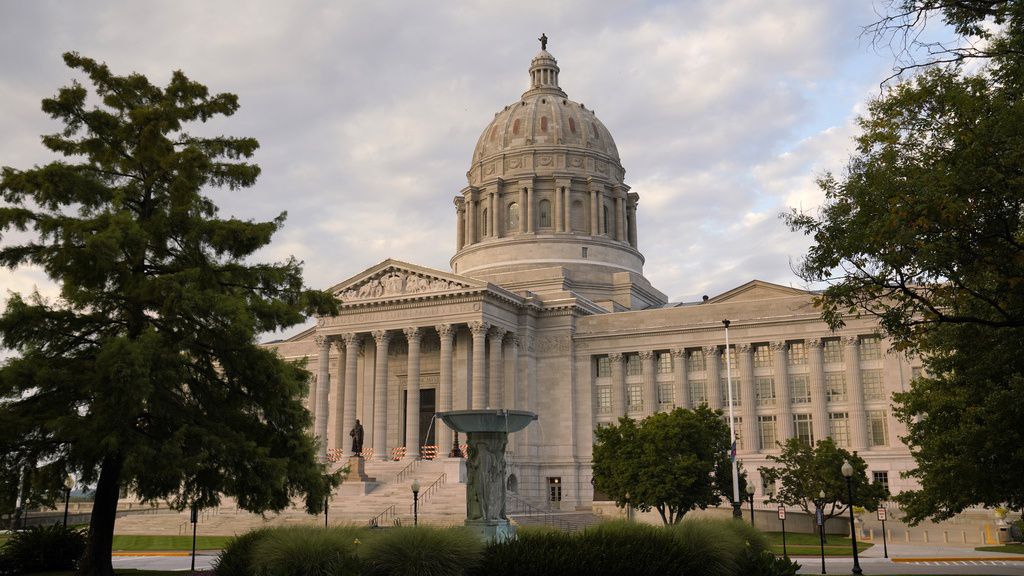


/cdn.vox-cdn.com/uploads/chorus_asset/file/24323284/Screenshot_2022_12_29_at_3.29.06_AM.jpeg)
